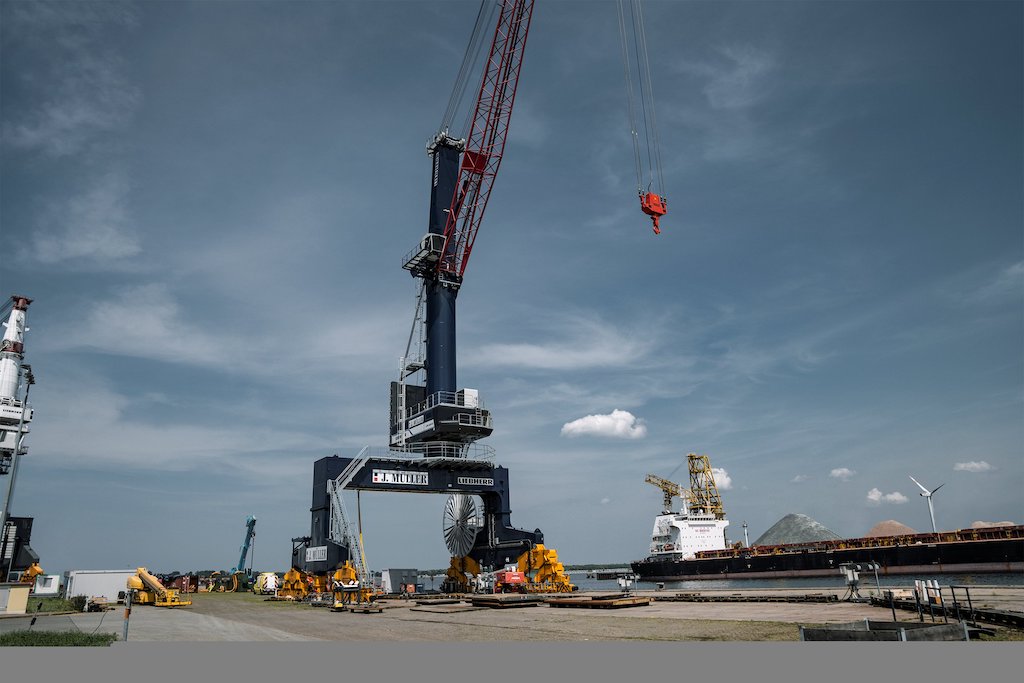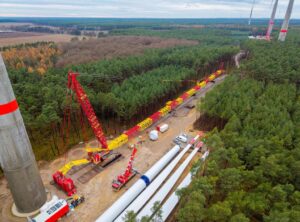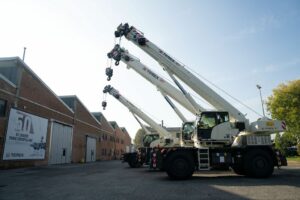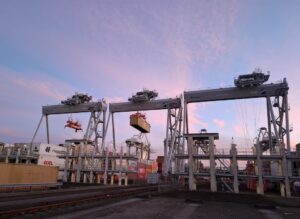J. MÜLLER Weser GmbH & Co. KG has installed the first LPS 600 crane in Germany at the seaport of Brake. Supplied by Liebherr, the LPS 600 features a 61-meter boom, electric drive, motorized grab control, and a large cable drum, enabling it to handle a range of dry bulk and general cargo at impressive speeds—up to 1,000 tonnes per hour under optimal conditions. Designed to adapt to the port’s needs, the crane’s curved chassis and flood-protected wheels ensure it can operate across Brake’s 2.5-kilometer quay, reaching areas of the port that previously faced access challenges.
This investment is set to enhance J. MÜLLER’s handling capabilities for materials such as grain, minerals, steel, timber, and wind turbines. With sustainability as a priority, the LPS 600’s electric drive reduces CO2 emissions and energy costs, supporting J. MÜLLER’s environmental goals. “Our investment in the LPS 600 will improve handling performance for both bulk and general cargo, streamline operations, and increase throughput,” said Jens Ripken, Managing Director of J. MÜLLER. “We believe this crane will meet our current demands and bolster our future growth and expansion, thanks to Liebherr’s commitment to innovation and quality.”
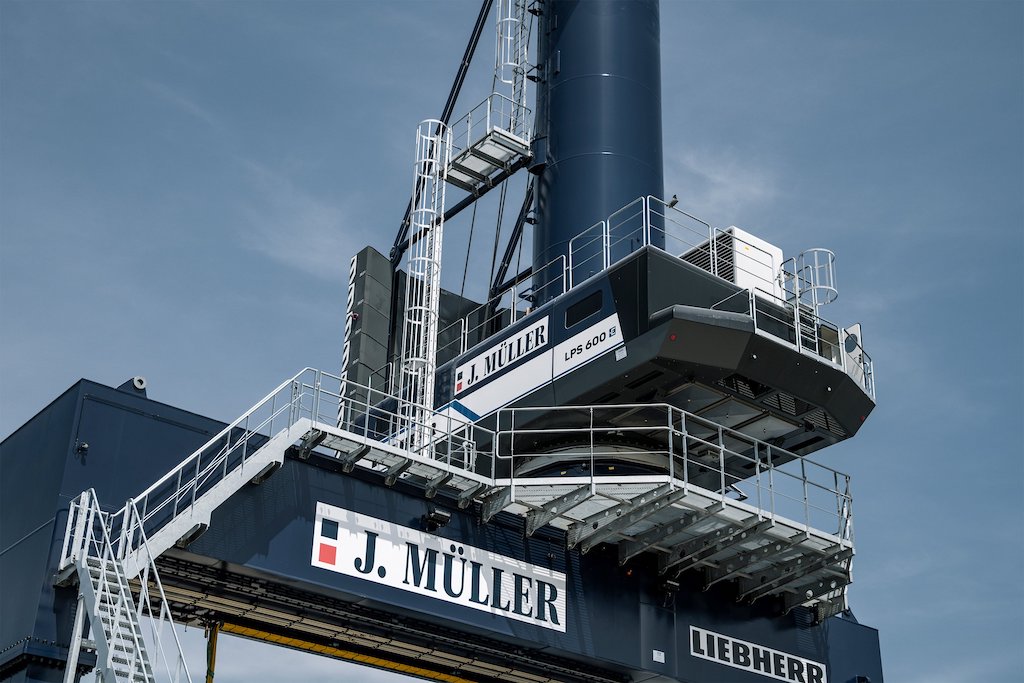
The LPS 600, tailored to meet Brake’s specific cargo demands, incorporates video monitoring and custom J. MÜLLER branding. Its closed grab also reduces emissions when managing dusty cargo like animal feed and grain, enhancing air quality in the port. Liebherr’s technical and operational teams collaborated closely with J. MÜLLER to adapt the crane to Brake’s unique needs, reflecting their joint focus on quality and reliability.
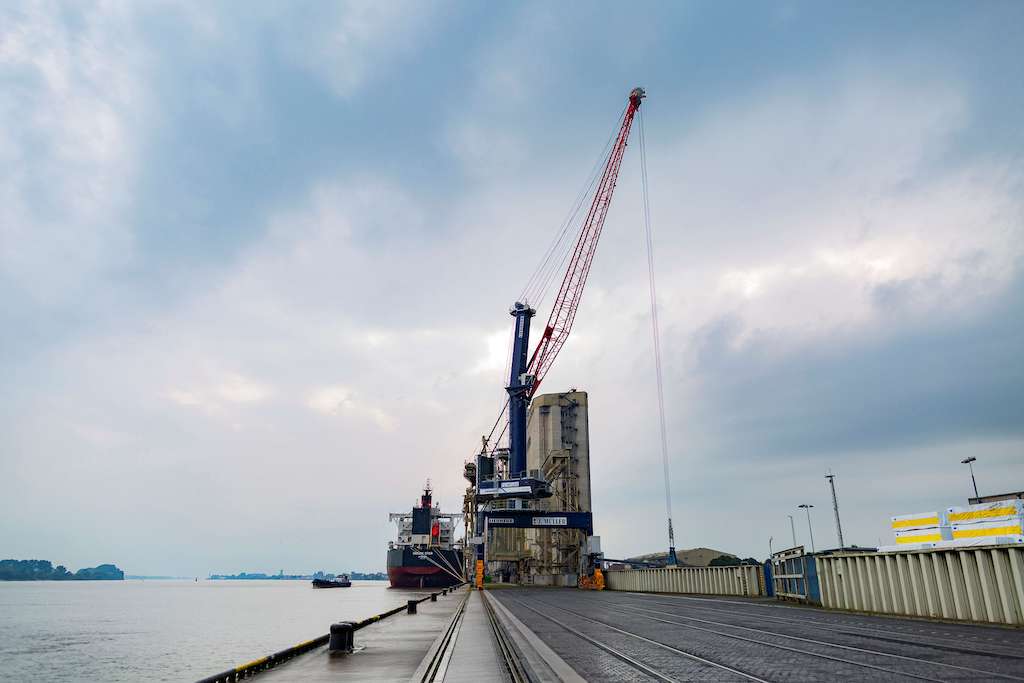
Founded in 1821, J. MÜLLER has remained family-owned, with operations in Brake and Bremen focusing on the efficient transshipment of bulk and breakbulk. The company operates Europe’s largest continuous silo facility, managing storage capacity of over 1.2 million tonnes. The LPS 600 marks a significant upgrade to J. MÜLLER’s cargo-handling capabilities, reinforcing Brake’s economic significance as a hub for European maritime logistics.


